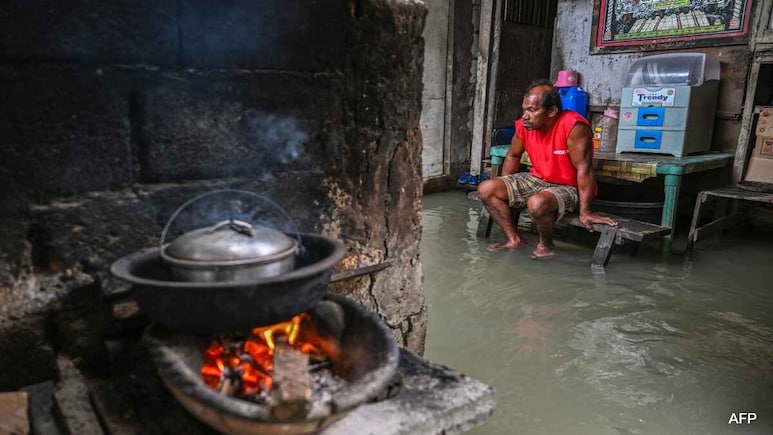
Weeks of heavy monsoon rains have flooded much of the Philippines, showing how vulnerable low-lying towns are, and triggering deep public anger over corruption and the flashy lifestyles of the wealthy. At the centre of the fury are "nepo babies," children of powerful families flaunting their wealth while flood control systems fail.
Crissa Tolentino, a 36-year-old public school teacher in Apalit, a town near Manila, has long treated floods as part of life. Using a paddle boat to navigate inundated streets, she travels to work and to a clinic for cancer treatment. She says dry streets are a rarity, seen for only about two months in a year.
But this year, Ms Tolentino is furious.
"I feel betrayed," she told the BBC. "I work hard, I don't spend too much and taxes are deducted from my salary every month. Then I learn that billions in our taxes are being enjoyed by corrupt politicians."
The backlash mirrors the recent trend that was seen in Nepal, where anti-corruption protests against "nepo-babies" eventually toppled the government. In the Philippines, anti-corruption campaigns previously ousted two presidents and forced legislative reforms.
The unusually fierce monsoon has left millions stranded, left submerged cars floating down streets, and outbreaks of leptospirosis, a liver disease spread by rat excrement. Social media platforms such as Facebook and X are abuzz with calls for accountability. They have targeted lawmakers and construction tycoons, accusing them of running "ghost" flood control projects.
Public anger has focused on Pacifico and Sarah Discaya, a couple who went from humble beginnings to great wealth. Once praised on YouTube for their "inspiring" rags-to-riches story, they now face scrutiny after videos showed them flaunting three dozen luxury cars. The Filipino internet has unleashed a wave of criticism against such "nepo babies", asking to thank taxpayers for funding their shopping and travel.
Filipino President Ferdinand "Bongbong" Marcos Jr acknowledged the scale of the problem during an inspection of a flood control dam that later turned out not to exist.
Economic planners later admitted that corruption claimed 70 per cent of public funds allocated for flood control. Resignations and ousters of high-profile politicians followed, while investigations into contractors are ongoing.
A 28-year-old government researcher from Calumpit has started selling rain overalls with boots sewn in. "I'm angry and dismayed because money allocated for flood control projects in our province went to waste, to people who used it for their personal gain," he told the BBC.
Track Latest News Live on NDTV.com and get news updates from India and around the world

